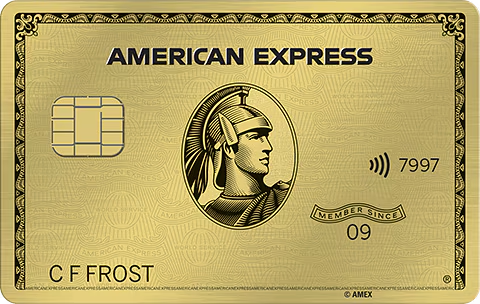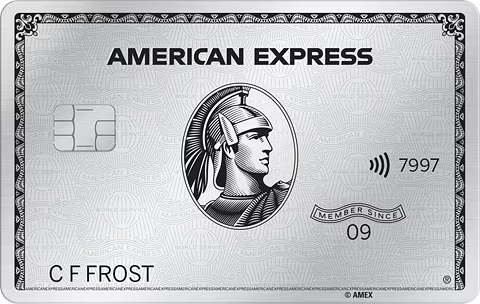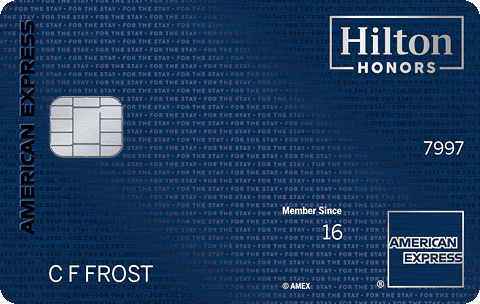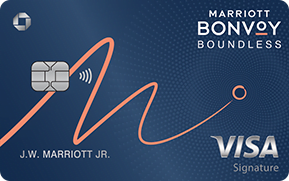Traveling can be one of life’s greatest joys, but it often comes with a hefty price tag. That’s where the right travel credit card comes in, helping you earn rewards, enjoy exclusive perks, and save money on your adventures. With so many options on the market, choosing the best one for your needs can be daunting. Don’t worry—we’ve got you covered! In this guide, we’ll walk you through the top 10 travel credit cards for 2025, detailing their features, pros and cons, and who they’re best suited for.
The Top 10 Best Credit Cards for Travel in 2025
1. Chase Sapphire Preferred® Card

Key Features
- 60,000 bonus points after spending $4,000 in the first three months
- 2x points on travel and dining
- 1x point on all other purchases
- No foreign transaction fees
Pros and Cons
- Pros: High sign-up bonus, flexible point redemption through Chase Ultimate Rewards, great travel and dining rewards.
- Cons: $95 annual fee, high spending requirement for the bonus.
Who Should Get This Card? Ideal for frequent travelers and foodies who want versatile rewards and excellent travel benefits.
2. Capital One Venture Rewards Credit Card

Key Features
- 75,000 miles after spending $4,000 in the first three months
- 2x miles on every purchase
- No foreign transaction fees
Pros and Cons
- Pros: Simple rewards structure, generous sign-up bonus, no blackout dates on travel redemptions.
- Cons: $95 annual fee, limited travel partners.
Who Should Get This Card? Great for travelers seeking straightforward rewards and easy-to-redeem miles.
3. American Express® Gold Card

Key Features
- 60,000 Membership Rewards® Points after spending $4,000 in the first six months
- 4x points at restaurants and on groceries (up to $25,000 per year)
- 3x points on flights booked directly with airlines or on amextravel.com
Pros and Cons
- Pros: Excellent dining and grocery rewards, generous points on travel, valuable annual credits.
- Cons: $250 annual fee, no introductory APR offer.
Who Should Get This Card? Perfect for food enthusiasts and those who spend heavily on groceries and dining out.
4. Citi Premier® Card

Key Features
- 80,000 points after spending $4,000 in the first three months
- 3x points on air travel, hotels, and at gas stations
- 1x point on all other purchases
Pros and Cons
- Pros: High sign-up bonus, broad rewards categories, easy-to-use points.
- Cons: $95 annual fee, complex points transfer process.
Who Should Get This Card? Best for travelers who want to earn rewards on a variety of spending categories.
Read more: The Best Credit Cards for Travel Insurance
5. Bank of America® Travel Rewards Credit Card

Key Features
- 25,000 online bonus points after making at least $1,000 in purchases in the first 90 days
- 1.5 points per dollar on all purchases
- No annual fee, no foreign transaction fees
Pros and Cons
- Pros: No annual fee, straightforward rewards, flexible point redemption.
- Cons: Lower rewards rate compared to some competitors, fewer premium perks.
Who Should Get This Card? Ideal for occasional travelers who prefer a no-annual-fee card with simple rewards.
6. Discover it® Miles

Key Features
- Unlimited 1.5x miles on every dollar spent
- Discover will match all the miles earned at the end of the first year
- No annual fee, no foreign transaction fees
Pros and Cons
- Pros: No annual fee, first-year match program, flexible redemption options.
- Cons: Limited international acceptance, fewer travel perks.
Who Should Get This Card? Great for those who want a no-fee card with a generous first-year bonus.
7. The Platinum Card® from American Express

Key Features
- 100,000 Membership Rewards® Points after spending $6,000 in the first six months
- 5x points on flights booked directly with airlines or on amextravel.com
- Access to Centurion Lounges and other premium airport lounges
Pros and Cons
- Pros: Extensive travel perks, high rewards on travel, premium benefits.
- Cons: $695 annual fee, high spending requirement for the bonus.
Who Should Get This Card? Best suited for luxury travelers who want top-tier perks and benefits.
8. Capital One® Spark® Miles for Business

Key Features
- 50,000 miles after spending $4,500 in the first three months
- 2x miles on every purchase
- No foreign transaction fees
Pros and Cons
- Pros: Generous rewards rate, flexible redemption options, no foreign transaction fees.
- Cons: $95 annual fee (waived the first year), requires good to excellent credit.
Who Should Get This Card? Ideal for business owners who travel frequently and want to maximize their rewards.
9. Hilton Honors American Express Aspire Card

Key Features
- 150,000 Hilton Honors Bonus Points after spending $4,000 in the first three months
- Complimentary Hilton Honors Diamond status
- $250 Hilton resort statement credit
Pros and Cons
- Pros: Excellent rewards for Hilton stays, valuable status perks, generous bonus.
- Cons: $450 annual fee, best for Hilton loyalists.
Who Should Get This Card? Perfect for Hilton loyalists who want to maximize their stays and enjoy elite benefits.
10. Marriott Bonvoy Boundless® Credit Card

Key Features
- 100,000 Bonus Points after spending $3,000 in the first three months
- 6x points at Marriott Bonvoy hotels
- 2x points on all other purchases
Pros and Cons
- Pros: High rewards rate at Marriott properties, free night award every anniversary.
- Cons: $95 annual fee, limited to Marriott properties for best rewards.
Who Should Get This Card? Best for frequent Marriott guests who want to earn and redeem points for hotel stays.
How to Maximize Your Travel Rewards
Understanding Point Redemption
Redeeming points wisely can make a huge difference in the value you get from your travel credit card. Focus on transferring points to airline and hotel partners, booking travel through your card’s portal, and taking advantage of special offers.
Tips for Earning More Points
- Use your card for everyday purchases.
- Take advantage of bonus categories.
- Combine points with family or friends.
- Watch for promotional offers from your card issuer.
Leveraging Credit Card Benefits
Don’t overlook the non-rewards benefits of your card. Perks like travel insurance, lounge access, and statement credits can add significant value to your card.
Conclusion
Choosing the right travel credit card can enhance your travel experience and save you money. Whether you’re a frequent flyer, a luxury traveler, or someone who enjoys occasional getaways, there’s a card on this list that’s perfect for you. Consider your spending habits, travel preferences, and the perks that matter most to you when making your decision.
FAQs
What is the best travel credit card for beginners?
The Chase Sapphire Preferred® Card is often recommended for beginners due to its robust rewards, flexible point redemption, and reasonable annual fee.
How can I avoid foreign transaction fees?
Choose a travel credit card that doesn’t charge foreign transaction fees, such as the Capital One Venture Rewards Credit Card or the Chase Sapphire Preferred® Card.
Can I use travel credit card points for non-travel expenses?
Yes, many travel credit cards allow you to redeem points for statement credits, gift cards, or merchandise, though the value may be lower than redeeming for travel.
How often should I apply for a new travel credit card?
It’s generally a good idea to apply for a new travel credit card every 12-24 months to take advantage of sign-up bonuses and new benefits, but avoid applying for too many cards at once to protect your credit score.
Are travel credit cards worth it?
Absolutely, especially if you travel frequently and can take advantage of the rewards, perks, and benefits they offer.












